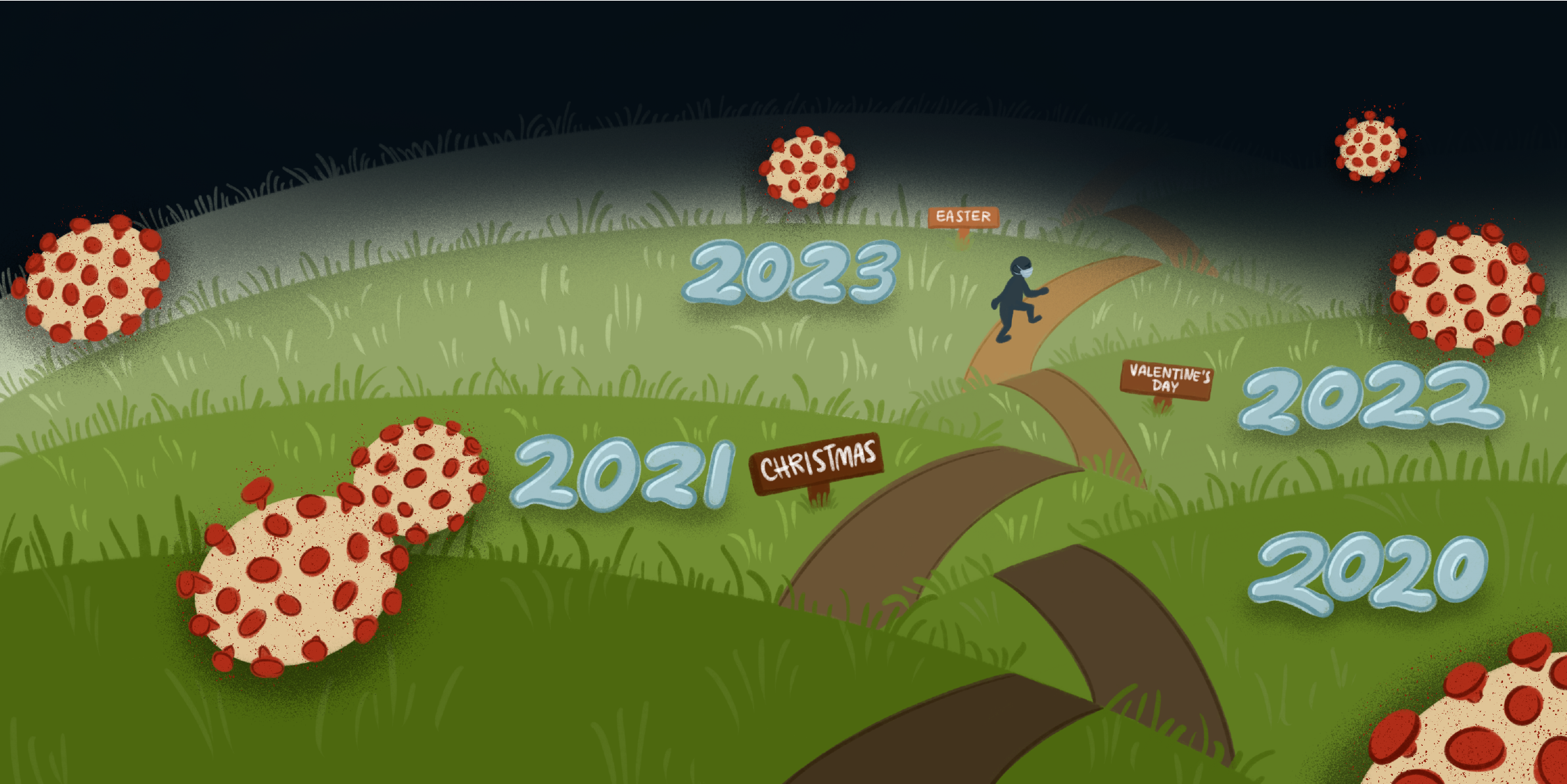The effects of long COVID and scientific sleuthing
When Jean-Jacques Schoch tested positive for COVID-19, he never thought the disease would follow him for more than eleven more months.
He recovered from the virus, but now faced neurological damage. Schoch’s symptoms included severe, constant headaches, chronic fatigue and brain fog.
“After COVID I could not remember my multiplication tables. I couldn’t. I lost a lot of childhood memories,” Schoch said.
Schoch was diagnosed with post-acute sequelae, or long COVID.
He is not alone.
According to the National Institutes of Health (NIH) and Centers for Disease Control and Prevention (CDC), “Symptoms of long COVID affect as many as one in five adults who get COVID-19,” and “one in 13 adults in the U.S. have long COVID symptoms.”
Leonard A. Jason, DePaul University psychology professor and director of the Center for Community Research, studies chronic fatigue syndrome or myalgic encephalomyelitis (ME/CFS) and has received a National Institutes of Health (NIH) grant of more than $800,000 to study long COVID.
According to Jason, coeditor with Charles Lapp of Understanding the Behavioural and Medical Impact of Long COVID, “symptoms like brain fog can cause the mind to block out names and problem-solving skills.”
Schoch found it difficult to form thoughts and hold conversations without stuttering.
“My hair started falling out. When I went in the shower, it came out in clumps,” he said. “The part that really worried me was my racing heart. If I was just sitting down or trying to go to sleep at night, I would just hear this loud bum, bum, bum, bum.”
A visit to the doctor revealed significantly high blood pressure levels to a surprised Schoch, who had never experienced high blood pressure and exercised regularly.
“I felt like a feeble old man who was just in constant pain,” Schoch said.
Jason says cognitive challenges, similar to the type Schoch experiences, affect an individual’s everyday life.
“These are things that we generally have to do in our work world. And if, for example, a student can’t do those things … they can really have serious consequences for effectiveness, either at school or work,” said Jason.
While many questions about long COVID remain unanswered, “certain symptoms [seem] to be at the top of the list with long COVID, like fatigue. Some individuals have cognitive impairment, unrefreshing sleep, even some orthostatic problems,” Jason said. Orthostatic problems can include an increase in blood pressure when standing up.
“Some people get infections, and they don’t recover, and some people do. That’s really what we’re trying to study and understand, and also see if we can identify some of those factors,” he said.
Linda Simpson, who received the Pfizer vaccine and a booster, also has symptoms of long COVID.
She felt unwell in October 2021, but says “unfortunately,” the “nurse practitioner did not swab” her, so she was not able to provide proof of a COVID-19 infection.
Simpson returned in November 2021 and tested negative, but after attending a birthday party in May 2022, she felt ill again. She was diagnosed with multiple ear infections before an Ear Nose and Throat doctor (ENT) explained she had long COVID.
Simpson experiences daily low grade fevers with temperatures of 99.4 to 100.6. With the help of corticosteroids, she has been able to lower the frequency to about three to four days a week. Simpson said that the “fatigue is ongoing.”
Prior to testing positive for COVID-19, Simpson embraced an active lifestyle, working out three days a week and reaching 10,000 steps a day.
Schoch has also experienced chest pain, which some COVID-19 long-haulers describe as “lung burn.”
He pointed out that “they were not constant” and “ebbed and flowed about every 10 days.”
Those symptoms were compounded by depression and anxiety.
The Virology Journal identifies “the key source of various inflammatory cytokines in COVID-19” as “mast cells, which are activated by SARS-CoV-2 to release pro-inflammatory cytokines and contribute to the development of pulmonary cytokine storms and other COVID-19 pathologies.” Cytokines can control inflammation and stimulate the immune system, but when pro-inflammatory they can make diseases worse.
Jason noted that where the samples are being collected from plays a large role as well.
“There is a narrow case definition, in which someone has long COVID on the medical records,” he said. “And then there’s other data that’s broader where people say that they’ve been exposed to the virus, and that’s a larger group. And so there might be two subtypes. And the risk factors might be a little bit different.”
To help identify biomarkers and aid doctors in accurately diagnosing long COVID, Jason’s research team have suggested what a case definition could be and have developed a questionnaire to assess the symptoms.
Simpson says she “would like for the doctors to be able to do more as far as setting up places that we can go to, setting up more research around the country.”
“I do think that there needs to be a whole lot more research done as to all of the things that long COVID itself affects,” said Simpson.
While his research is ongoing, Jason suggests reducing some risk of long COVID by managing stress and practicing healthy eating and sleeping habits.
Header Illustration by Yù Yù Zander




NO COMMENT